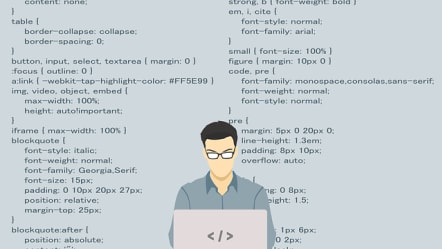8 Job Search Tips for Aspiring Tech Professionals

As the date nears the end of June, an exciting time arrives for many - the time of final exams at universities and colleges. The hard work of all recent graduates is finally rewarded in the form of a degree. But many graduates are now faced with the question of what to do next. It's a pretty weighty question for any young adult to ask.
Whether you're 21 or 22 and fresh out of college, or maybe you've even taken a different path to gain work or life experience before your big career - the next step, the job search, the interviews, all of it can seem a bit daunting. After all, you're making decisions that matter for the entire course of your life. But with the right preparation and perspective, that can work out well, too.
The good news for recent IT graduates is that the unemployment rate is very low. For job-seeking developers and IT specialists, there has probably never been a better time.
Despite this good state of the tech job market, there's nothing more valuable than gaining experience and insight. So here are eight tips for IT pros just starting their journey into the workforce.
Take your time:
There's often a lot of outside pressure - whether it's from parents, peers, maybe even because of any debt or other reasons - for graduates to start right out with a job or take the first offer that comes along. If possible, take some time to relax after the final exams, enjoy the summer weather, travel, pursue a hobby or do some volunteer work. At the same time, of course, you can already be looking for a job. According to experts, a little time off like this not only has a positive effect on physical and mental health, but is also perceived positively by many recruiters.
Staying grounded with high goals after all:
While you're looking through all the industries, fields and careers that interest you and fit your studies, approach it with a broad perspective. It's similar to finding the right degree: create personal categories for yourself such as "target companies," "safety nets" or "wild cards."
But don't expect every company you apply to or interview at to take you - but don't rule anything out either. Know your comfort zone and even consider moving outside of it a bit now and then. It might be the right time to at least get an interview at "that well-known" company that everyone would love to work for. And finally, always remember that your first job is also just that: a first step toward possibly something completely different if things aren't the best fit.
Highlight talents:
Graduate study and teaching experience are enormously valuable, as is work experience. But potential employers these days want to know what you have to offer beyond your resume. Clearly articulate your technical skills - such as programming, etc. - as well as soft skills - such as communication, leadership, collaboration and teamwork. During an interview, feel free to mention any such certifications you have - or are working on - as well.
Be curious:
During an interview, feel free to ask questions yourself. Be respectful when doing so, but also take the opportunity to "interview" the hiring manager or HR professional to gain some insight into the company and the work environment.
Be prepared:
It may sound obvious, but it doesn't always translate into practice. Especially with all the information on the internet, you can research for interesting companies, who works there, has worked there, what the social media channels give away and what information I get from devjobs.at and devjobs.de. All the details you learn about the company culture can come in handy.
Be selfish, a little bit:
After all, it's your job search and your future. Look for a suitable company that is also dedicated to your professional development. Always try to establish direct contact. You may know someone at the company, even if through three corners. The chances of a positive response increase tenfold if you can personally contact an HR expert or personnel manager.
Think short term and long term:
If possible, clarify up front whether you and your future boss are a good fit. Also inquire about the company culture, mentoring programs, opportunities for advancement, opportunities to develop new skills, employee say, etc. These things are all important aspects for your first job.











